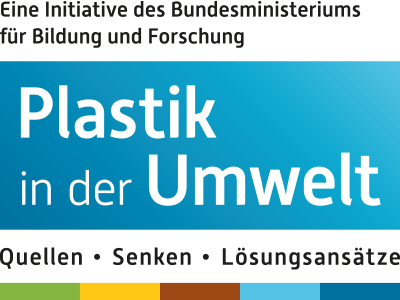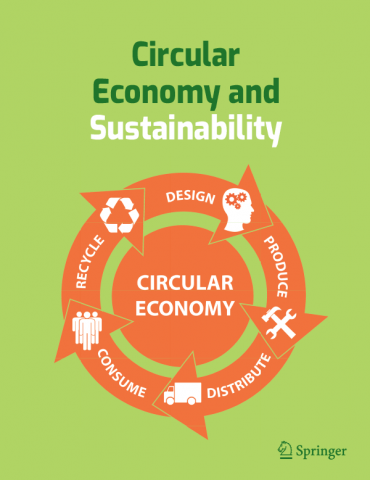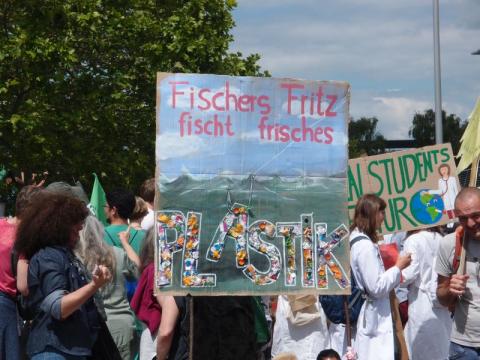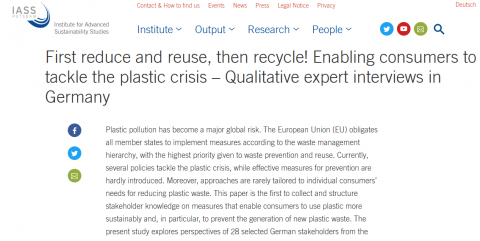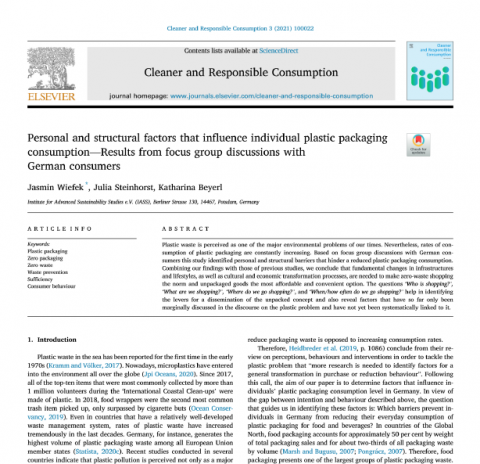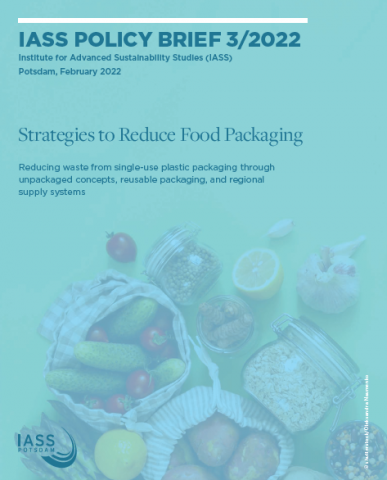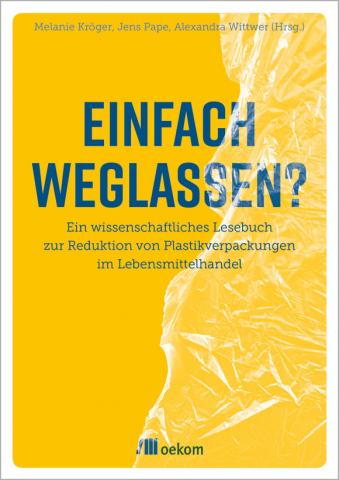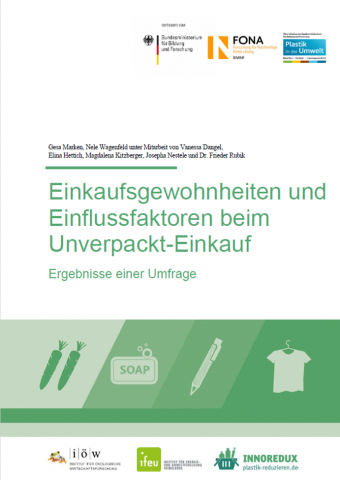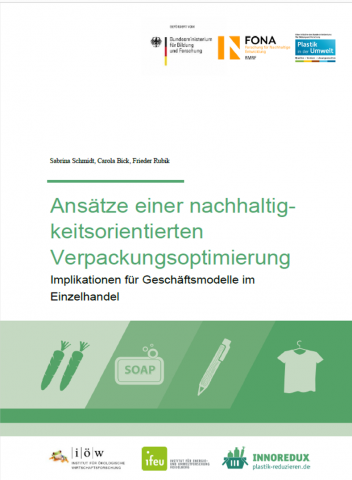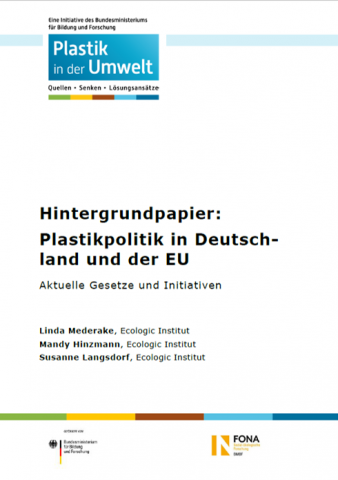Veröffentlichungen
This brochure is the short version of the publication Key Messages of the BMBF Research Focus "Plastics in the Environment". It summarizes the most important key messages from all 20 joint research projects and the seven cross-cutting topics of the research focus.
The publication summarizes the key messages from all 20 joint research projects and the seven cross-cutting topics of the research focus. Structured by main topics, the central results are presented in order to derive recommendations for various addressees.
The volume of plastics entering the environment is growing worldwide. Since existing regulations are not sufficient to curb the problem, the ever-increasing plastic production and use must be reduced. A systemic approach is needed that holds all actors responsible who produce, use, recycle, dispose and trade in plastic products and packaging.
Plastic pollution has become a major global risk. The European Union (EU) obligates all member states to implement measures according to the waste management hierarchy, with the highest priority given to waste prevention and reuse.Currently, several policies tackle the plastic crisis, while effective measures for prevention are hardly introduced.
Plastic waste is perceived as one of the major environmental problems of our times. Nevertheless, rates of consumption of plastic packaging are constantly increasing. Based on focus group discussions with German consumers this study identified personal and structural barriers that hinder a reduced plastic packaging consumption.
The high volume of plastic packaging currently consumed in Germany poses a complex socio-ecological risk. As part of the BMBF-funded ENSURE research consortium, environmental psychologists at the Institute for Advanced Sustainability Studies (IASS) in Potsdam have studied various policy options to promote a reduction in individual consumption of plastic food packaging.
The discussion about plastic waste is anything but new for German municipalities. In fact, as early as the 1980s, numerous German municipalities were experimenting with plastic waste prevention regulations and waste prevention in general. A further impetus for plastic waste prevention was provided in the early 1990s with the discussions on the introduction of a nationwide packaging ordinance.
Numerous one- to two-person households, an increase in mail-order business as well as the popular "to-go" culture are causing a steady rise in the consumption of plastic packaging in Germany. While approximately 1.8 million tons of plastic were produced per year in 2000, this figure had already risen to 3.1 million tons by 2016.
The paper shows that well meant is not always well done. It deals with the question of blank value entries and how "one" should handle them. It shows that disposable gloves can be a source of false positive PE findings, as they can be coated with sterates, for example, which can be confused with PE by all analytical methods (pyr-GC/MS and spectroscopy).
There is a growing interest in monitoring microplastics in the environment, corresponding to increased public concerns regarding their potential adverse effects on ecosystems. Monitoring microplastics in the environment is difficult due to the complex matrices that can prevent reliable analysis if samples are not properly prepared first.
In order to counteract the problem of the constantly growing volume of packaging in Germany (Schüler, 2019), the Federal Government has promoted the strategy of waste avoidance over other strategies such as reuse, recycling and recovery or disposal strategies of packaging waste in the waste hierarchy of the Circular Economy Act.
Packaging volumes are continuously increasing in Germany. Plastic packaging, with its short lifespan and low global recycling rates, contributes to the accumulation of macro and micro plastics in the environment. Merely switching to glass and cardboard packaging does not appear to be an appropriate solution, as LCA studies suggest.
This article from the German magazine „masche“ portraits the joint project VerPlaPoS. The project examines consumer’s behavior concerning plastics and avoidance strategies at the point of sale.
Simple Generation of Suspensible Secondary Microplastic Reference Particles via Ultrasound Treatment
Microplastics found in nature originate from different sources can be classified accordingly. Primary microplastics are produced as such, whereas secondary microplastics are only created through the weathering of larger plastic parts in the environment.
Plastic particles are almost omnipresent in our environment. Even though nanoplastic pollution also falls into this area of concern, current analytical approaches reach their limits in this size range.
This paper by Schwaferts et al. addresses methodological gaps that exist in the analysis of microplastics. Specifically, it deals with the analysis of nanoparticles, as they are not covered by common analytical methods.
Polycyclic aromatic hydrocarbons (PAH) are widespread and environmentally persistent chemicals and a recurrent focus of scientific and public attention due to their effects on humans and the environment. PAH differ in their properties, but many of them are bioaccumulative and/or toxic to organisms.
